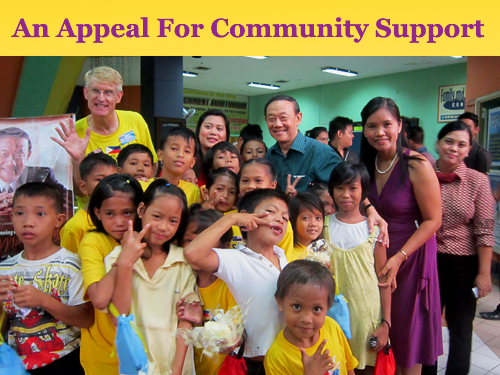A POTENT FORCE
The number of Filipinos living and working abroad represents about 11% of the total population of the Philippines and in some parts of the world – notably the United States, Canada, Australia and nearly in all countries of the American continent, Europe, the Middle East and Oceania, their presence helps fuel the growth and development of their adopted countries as it does their homeland’s own economy as visibly demonstrated by the annual remittances they make.
According to a new World Bank brief (November 2012) on global migration and remittances, the Philippines ranks third (US$ 24-billion) behind China (US$ 66-billion) and India (US$ 70-billion) of all officially recorded remittances made that year.
Undoubtedly, the sense of varied and diverse rootedness that diasporic Filipino communities experience as a people and ones who’ve depart from their homeland the Philippines to work or settle in other countries doesn’t sever or put an end to connections to their place of birth or relationships and ties to kin. Filipinos take their culture, customs, and ethnic identity with them thereby creating and extending the social space of their own communities abroad with those back home. And, there are 24-billion instances where they also speak louder than words using their wallets. It is a potent force to reckon with.
Why? Well let’s conservatively assume that if Filipinos regularly remit funds to members of their families on average of about 12% of their hard earned income each year, that obviously also means that the remaining 88% they keep is spent on living, paying taxes or invested in countries where they now work and live and it comes up to a current total of a just over US$ 199.9-billion (at year-end 2012).
A GIVING AND SPIRITUAL PEOPLE
Filipinos love to blend and harmonize with people, we like to include them in our ‘tribo’ or iwi, our ‘pamilya’ or whānau – and we like to be included in other people’s families, too. Therefore, we call our friend’s mother nanay or mommy; we call a friend’s sister ate (eldest sister) or older brother kuya, and so on. We even call strangers tia or tita (aunt), tio or tito (uncle), tatang (grandfather), and so on.
So extensive is our social openness and interrelations that we have specific titles for extended relations like hipag (sister-in-law’s spouse), balae (child-in-law’s parents), inaanak (godchild), ninong and ninang (godfather/godmother) kinakapatid (godparent’s child), and more.
In addition, we have the profound ‘ka‘ institution, loosely translated as ‘equal to the same kind’ as in kasama (of the same company), kaisa (of the same cause), kapanalig (of the same belief), and a host of other similar terms too long to list here.
It’s not surprising to learn that Filipinos are very spiritual too. We are transcendent – we transcend the physical world and see the unseen, hear the unheard. We have a deep sense of kaba (premonition) and kutob (hunch).
The Filipino has a sophisticated, developed sense of pakiramdam or ‘feeling’ and their spirituality makes them invoke a divine presence or intervention at nearly every bend of their journey through life. Rightly or wrongly, Filipinos are almost always acknowledging, invoking God or driving away evil influences from their lives. Seemingly trivial or even incoherent events can take on spiritual signi ficance and will be given some space or consideration.
Though becoming more and more modern (hence, materialistic) Filipinos are still very spiritual in essence. This inherent and deep spirituality makes the Fili pino, once correctly Christianized, a major exponent of the basic tenets of their faith.
A STRONG TRADITION
New Zealand has a strong tradition for giving. The Charities Commission has registered more than 24,000 charities and non-profits since 2007, although that number includes a number of private trusts and those really don’t count up as being imbued with real charitable causes.
About 33% of the population aged 10 and over are estimated to donate regularly. Statistics New Zealand figures show that householders give a weekly average of between NZ$ 2.40 and NZ$ 4.90, or NZ$ 124 to NZ$ 254 a year to their charity of choice.
Kiwis are a more giving bunch when it also comes to one-off donations. In the last study made in 2008, the most current data available, 49.6% of the popu lation (or 1,808,000 people aged 10 or over regardless of their ethnic back ground) made an ad-hoc donation.
The New Zealand Government also seems to support and encourage this trad ition of giving. Under tax amendments introduced in January 2010, you can donate or allocate part of your pay cheque to charity on a regular basis. The new framework also means that donors will get an immediate 33% tax refund. For example, a NZ$ 5-a-week donation is reduced to NZ$ 3.30 when the automatic return is factored in. Changes to charitable tax laws have also removed the cap on how much can be claimed.
For Filipinos in New Zealand, whether they now happen to be settled down in Auckland or other major cities of the country, an appeal for help to those who truly need it back in the Philippines has a tendency to resonate positively in their collective psyche for as long as they get to hear about it.
A WORTHWHILE CHARITY
This year, among a long list of other charitable organisations it has reviewed, Filipinos in Auckland suggests to members of the Filipino-Kiwi community in Greater Auckland to adopt and regularly support the Pinoy Street Children and Orphans Trust (or SCOT) as its favoured Kiwi charity. SCOT is a New Zealand-registered charity under the Charities Commission.
WATCH THE VIDEO – A BRIGHTER FUTURE
For now, SCOT just needs your valuable clicks. It has registered as a participant in a support-your-favourite charity contest sponsored by Toyota New Zealand. This sponsor is giving away 25 vehicles to New Zealand-registered charities for use provided they garner one of the top 25 slots in terms of total votes. The contest ends at close of day on 24 March 2013.
To be able to vote, you’ll need a Facebook account with a profile that has New Zealand as its location ID.
To vote after you login to Facebook just follow these simple steps:
1. Click this link.
2. Enter the keywords ‘NZ-PHIL SCOT Charitable Trust‘ on the search box provided, then press ‘GO’.
3. Wait for SCOT’s profile page address to display.
4. Click the active link that says ‘NZ-PHIL SCOT Charitable Trust‘ to enter its voting page.
5. Scroll down until you find the ‘Vote Now’ button, then click it.
Just 3-minutes of your time is needed. That’s all it takes!
Thank you for your valuable support.
From the Editorial Board
Filipinos in New Zealand
________________________________
For more information, you can also visit:
SCOT’s Community Website
SCOT’s Facebook Page
SCOT’s Donation Site
SCOT’s YouTube Channel


 During the Spanish
During the Spanish






























